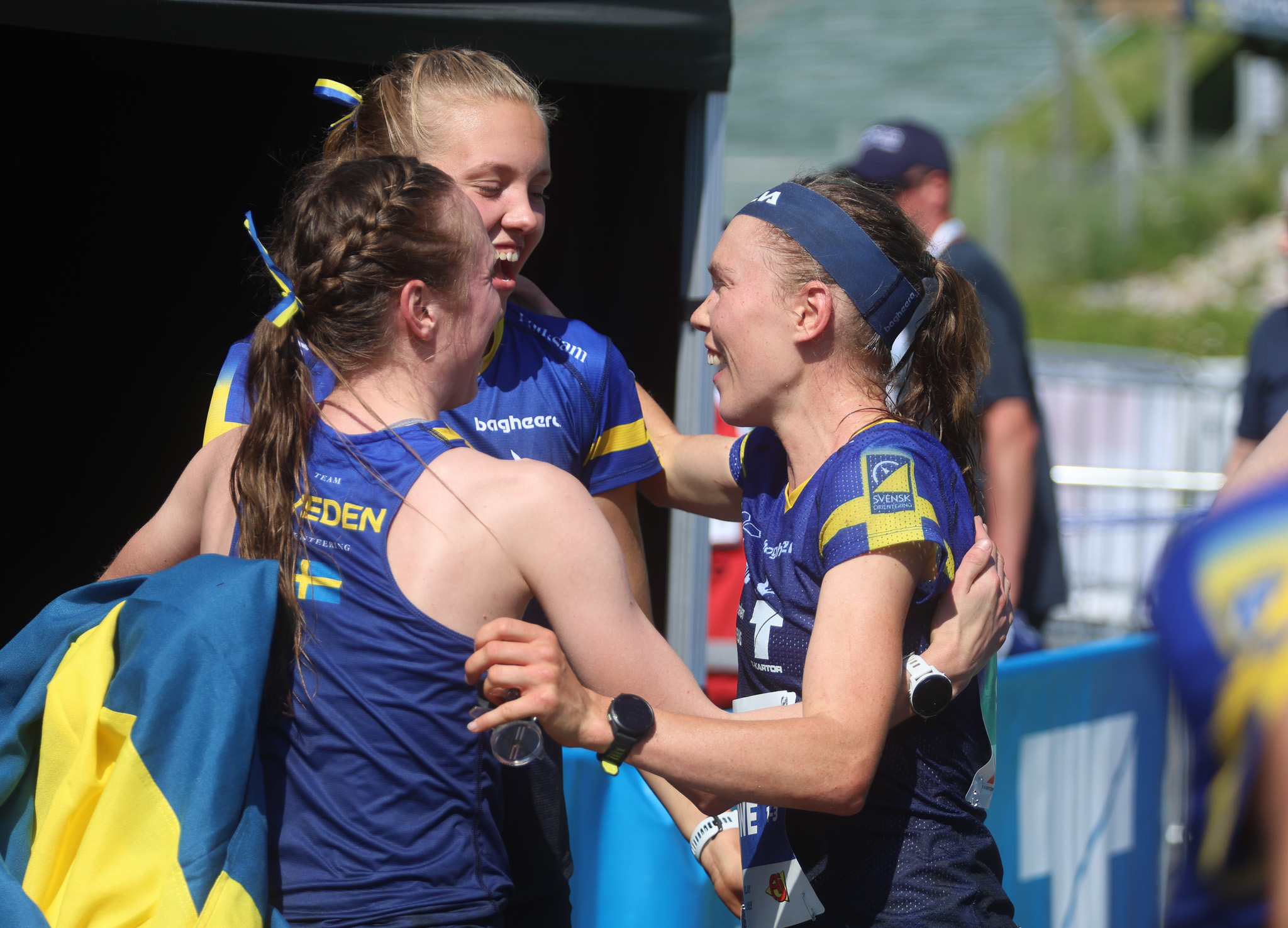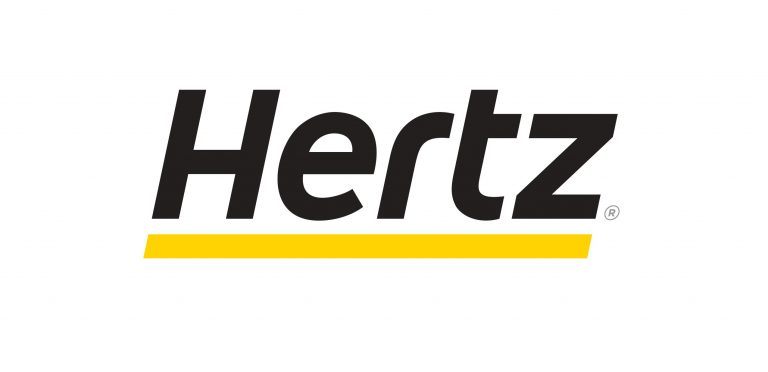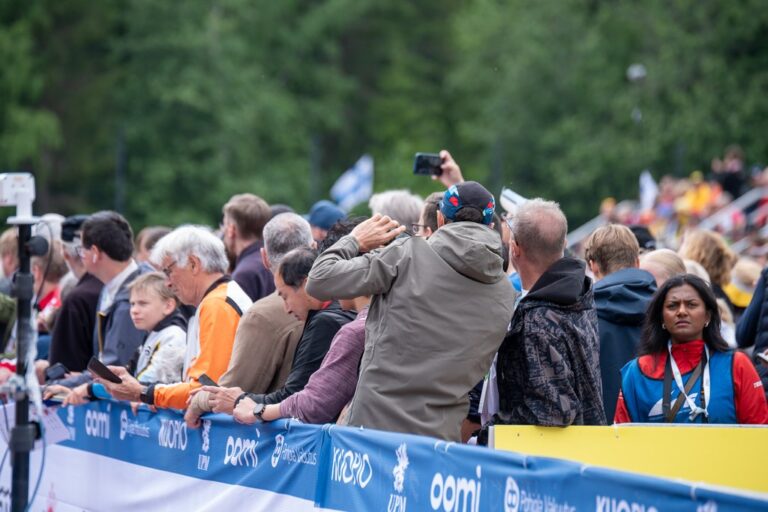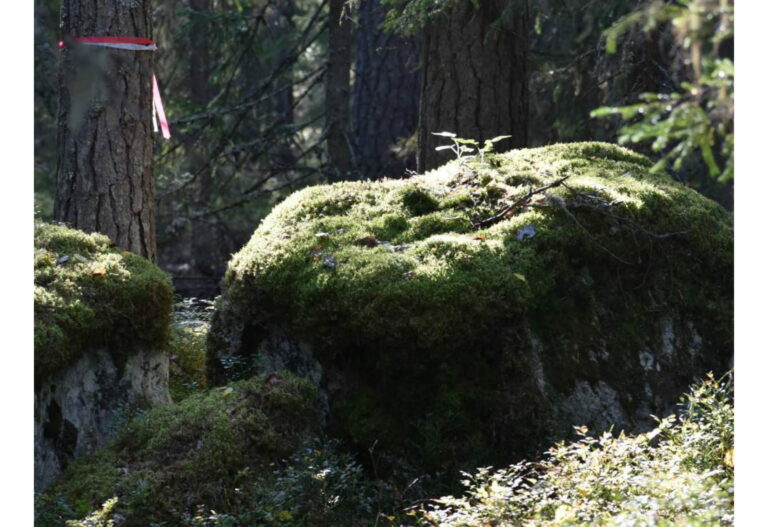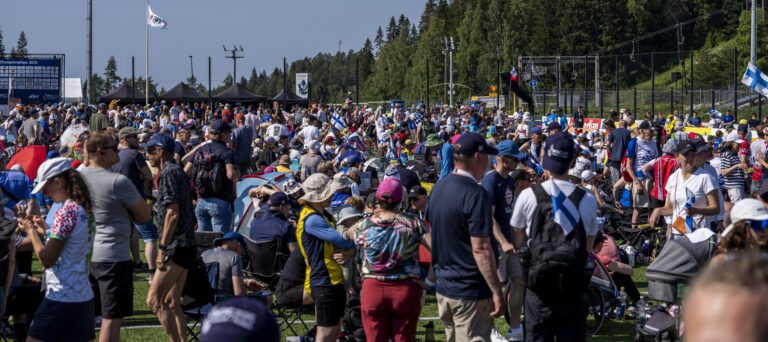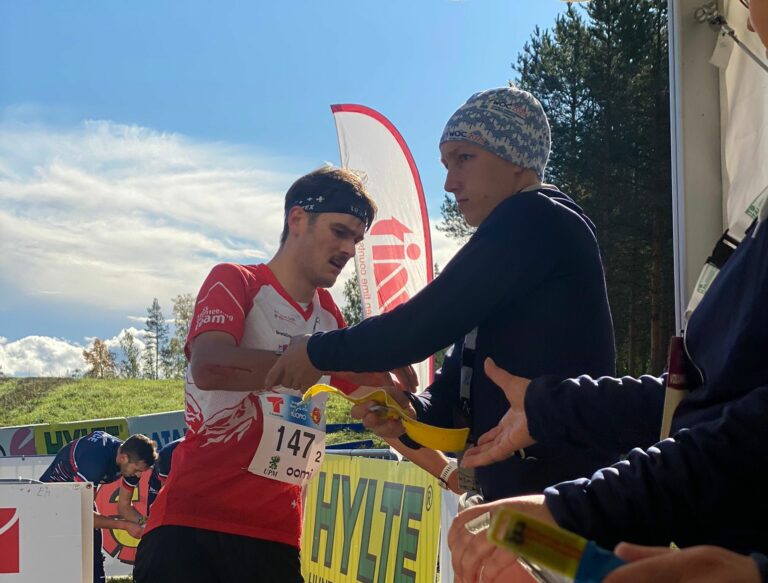Swedish Women Dominate Relay – Finland Finish Fifth
Sweden’s women continued their impressive winning streak by securing their fourth straight World Orienteering Championships relay gold, even under the sweltering conditions in Kuopio. The trio of Hanna Lundberg, Sanna Fast, and Tove Alexandersson beat silver medallists Norway by two and a half minutes. Switzerland, thanks to a strong final leg by Simone Aebersold, claimed bronze, four minutes behind the winners. Finland, who placed fifth, were narrowly beaten by the Czech Republic in a sprint finish.
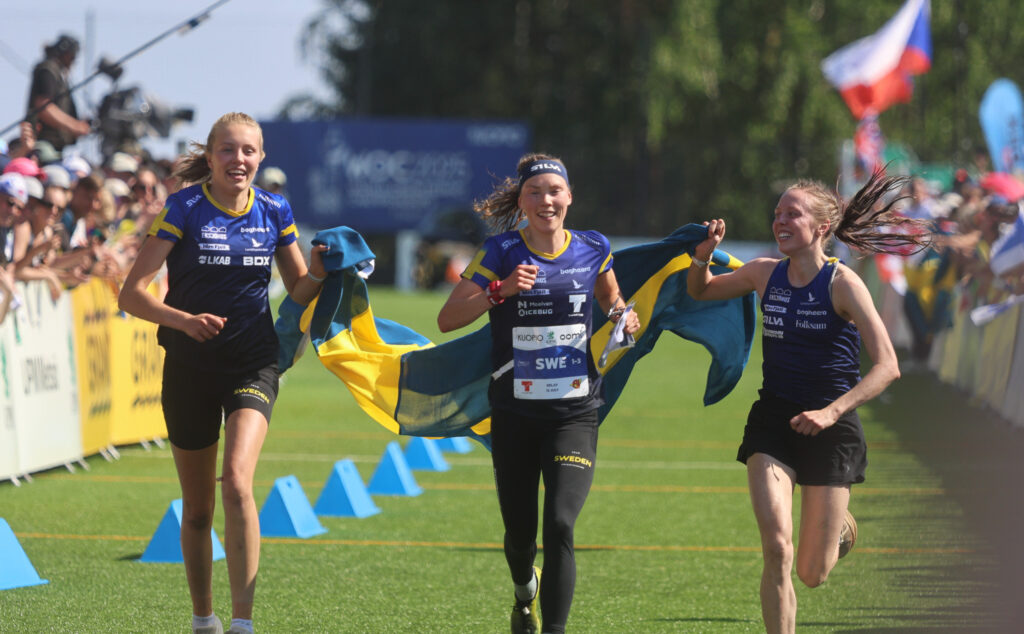
Sweden entered the race as the overwhelming favourite, having already achieved an extraordinary medal haul earlier in the week – including a clean sweep in the middle distance with the same trio. With the relay victory, Tove Alexandersson clinched her 23rd World Championship gold, tying the all-time record held by Switzerland’s Simone Niggli.
Norway Leads After First Leg
The first leg saw surprisingly large time gaps. For example, Switzerland’s Paula Gross lost around two minutes to the leaders. Norway’s Pia Young Vik and Sweden’s Hanna Lundberg led from the front, alternating positions throughout the leg. At the exchange, Norway had a 10-second lead. Finland’s WOC debutant Amy Nymalm came in third, about 90 seconds behind. A strong finish by Nymalm opened a gap of 30 seconds to Denmark’s Ida Agervig Kristiansson, who had been close behind.
“It was a solid performance, but not a dream run. I made one silly mistake on a road section — not even a proper orienteering error,” Nymalm reflected.
“The heat got to my head a bit, and I was watching others too much. But in the final sprint, the home crowd really carried me.”
Nymalm, who was added to the relay team after Marika Teini was sidelined with an injury, admitted to pre-race nerves affecting her appetite and sleep. However, once in the forest, the tension eased.
“As a reserve, you have to prepare like you’re racing. I trained as if I was going to run the long distance. When I didn’t make that team, I had to shift my mindset to focus on the relay.”
Norway’s Pia Young Vik, who posted the fastest time on the first leg, also described the leg as tough:
“Running with Lundberg worked well. It helped to adjust pace and share navigation at times. But I made sure I was always in control of my own orienteering — especially since we had different forking.”
On the second-last control, Young Vik found a path that Lundberg may have missed, allowing her to open a slight gap before the arena.
“I also had fresh legs after skipping the long distance,” she added.
Second Leg – Independent Navigational Decisions Key
The second leg saw more solo navigation and varied route choices, which led to significant time differences. Denmark’s Agnes Noergaard Kracht and Switzerland’s Natalia Gemperle both made errors, costing Switzerland an additional two minutes.
Sanna Fasth had a strong solo run at the front, though she too struggled to find ideal road crossing points. Last month, she anchored IFK Göteborg to victory in the Venla Relay at Mikkeli-Jukola, making this summer particularly successful for her.
The Czech Republic’s Lucie Dittrichová put in an exceptional performance, catching Norway with bold route choices and earning the second-fastest split on the leg, just 25 seconds behind Fasth.
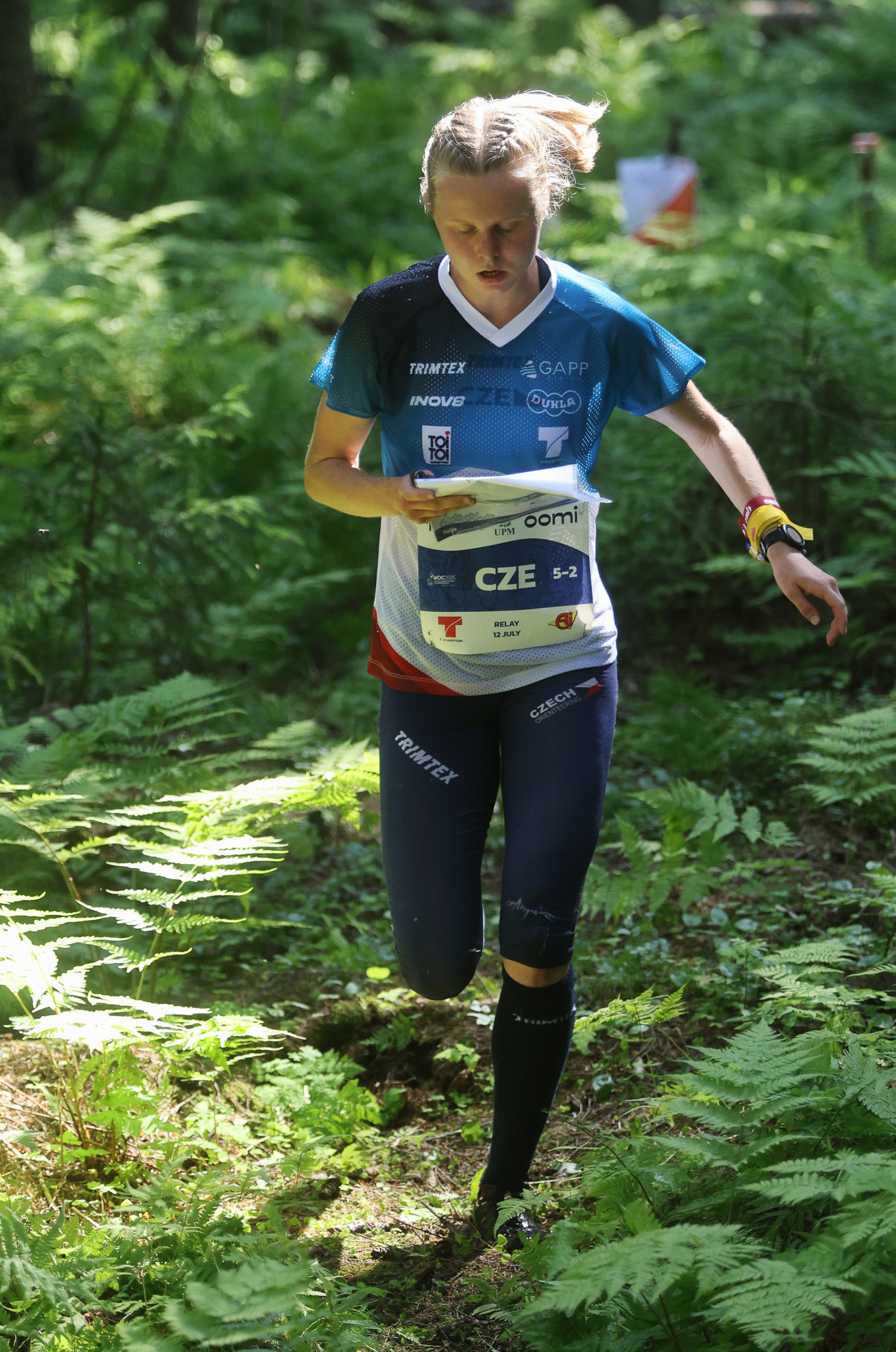
“I’m very satisfied. It wasn’t technically too difficult, so I focused on running as fast as possible,” Dittrichová smiled.
“I didn’t have a specific strategy — I just wanted to show what I could do and not let my teammates down. Seeing Haapala and Olaussen ahead gave me a boost.”
The Czech team had aimed for a top-six finish.
Finland’s Ida Haapala came into the second exchange in fourth place, about four minutes behind the lead, having lost 2.5 minutes on her leg.
“It was hard to find road crossings, and there were a lot of fallen trees to avoid. I should’ve made a different route choice on a long leg — either climb higher or go around via trail. I chose poorly out of carelessness,” she said.
“I tried to run with confidence and take risks, rather than hold back. I wasn’t too physically tired, but the conditions were exhausting.”
Haapala expressed joy at competing on home soil in Kuopio:
“It was amazing to run through the spectator area, but my focus remained on the map.”
Alexandersson Secures Gold with Calm and Precision
Tove Alexandersson sealed Sweden’s win with a typically assured anchor leg.
“I wanted to be careful with the controls. I only made one small mistake,” she said.
“This course was different from earlier in the week – more paths – but we had anticipated the terrain.”
Simona Aebersold, who brought Switzerland from fourth to third, had the fastest anchor leg, 14 seconds quicker than Alexandersson. She was delighted to end the week on a high after a disappointing middle distance.
“I focused on the orienteering because I was physically really tired. I caught the Czech runner quickly, which gave me energy,” she said.
“I’m not used to this kind of heat, but a cold shower before the start helped a bit.”
Aebersold acknowledged that beating Sweden was unrealistic:
“It already looked difficult beforehand. It would’ve taken perfect runs from all of us and mistakes from them. Still, we were determined to fight for the medals.”
Finland’s Venla Harju spoke to the media after her anchor leg:
“I’m not as mentally drained as after the long distance,” she noted.
Asked to assess her overall championship performance, she responded thoughtfully:
“It’s funny – I’ve won three WOC medals when I wasn’t expecting them, and now, when I’m in the best shape of my life, everything goes right, but there’s no medal. The stars align differently every year.”
“I felt good physically — better than in the relay two years ago. But relays are always tough, even if you haven’t raced every distance. I think I managed to block out the pressure mentally, though I don’t know if that helped my legs. Yesterday was emotionally heavy.”
Harju gave it her all, both in the forest and in the sprint finish against Czech anchor Tereza Rauturier.
“I focused on my own race, but of course, you’re trying to catch those ahead. Even knowing how strong the others are, you hope they’ll make mistakes. No matter the situation, I imagine I’m fighting for at least a bronze.”
“I suspected that with Simona anchoring, Switzerland would be flying. She made a mistake on the second control, so I stayed with her, and in the stony terrain we ran about the same speed,” she said.
“The course suited the terrain well. I expected fewer paths, but it turned out to be quite runnable.”
Asked to comment on the Finnish team’s overall relay performance, Harju replied:
“You always blame yourself most for your own mistakes. But a relay is three individual legs in a row — all have to go well.”
Full results, leg times, and split times available at:
https://online-live.tulospalvelu.fi/tulokset-new/en/2025_wocrelay/
Text: Heli Kauppinen
Photo: Hannu Keränen


